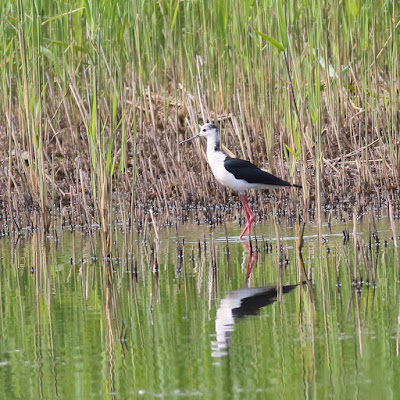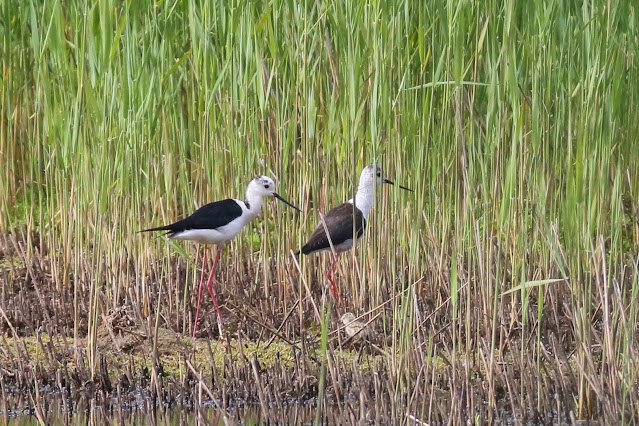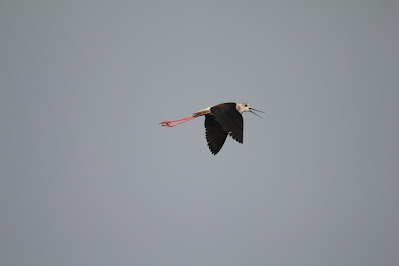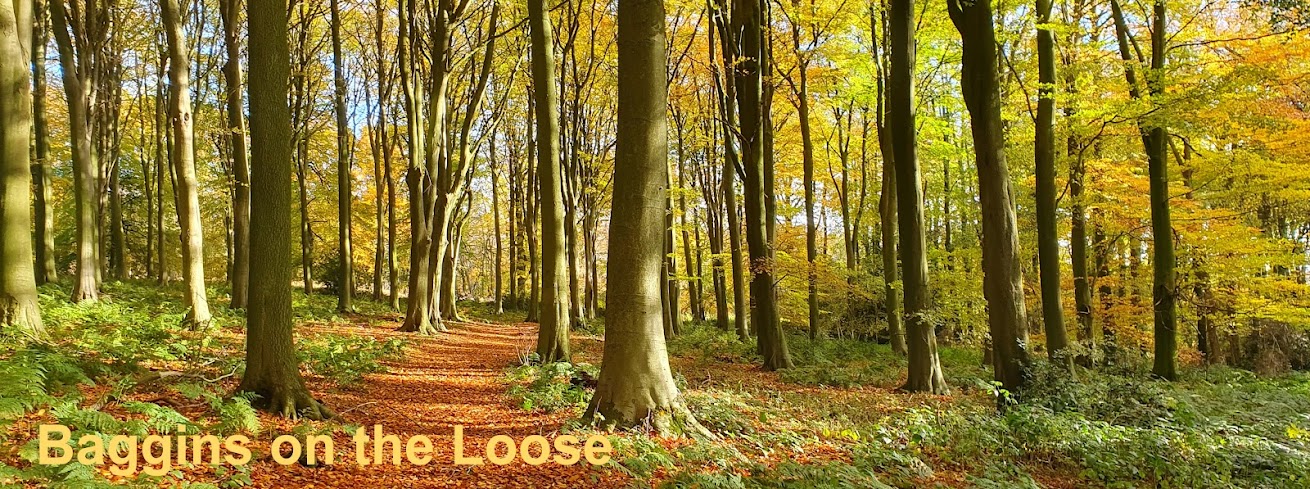There was much excitement amongst local birders when 2 Black Winged Stilts, a rare breeding bird in the UK, turned up at Yorkshire Wildlife Trust reserve Potteric Carr in South Yorkshire at the back end of last month.  |
| Black Winged Stilt, Potteric Carr, 16/06/2022 |
Even more exciting was the news that they had bred and hatched 3 chicks! These elegant and distinctive 'black and white' wading birds are relatively common throughout the temperate zones of the world including most of Southern Europe, but many wildlife experts believe that because of the effects of climate change they could follow in the footsteps of birds such as Little Egrets and become a familiar sight across our wetlands. More of that later - but for now they're rightly being celebrated as yet another Yorkshire first.
The day I went for a look see was the day it was discovered that they had successfully hatched a fourth chick and although they weren't the easiest of birds to photograph, spending much of their time obscured by reedy vegetation on Piper Marsh, I managed to get some reasonable shots of the pair and their tiny 'stiltlets'. So distinctive, the adult birds were easy to spot once they moved out of the reeds.
 |
| Black Winged Stilts, Potteric Carr, 16/06/2022 |
 |
| Black Winged Stilts, Potteric Carr, 16/06/2022 |
If you look closely on the above picture and you can clearly see one of the chicks in the reeds in front of mum and dad, and a few minutes later all 4 chicks came briefly into view.
 |
| Black Winged Stilt chicks, Potteric Carr, 16/06/2022 |
Like all newly fledged chicks they're vulnerable at this stage, especially if they stray too far from their parents, and whilst I was there I noticed both Black Headed Gull and Lapwing expressing an interest in a potential easy meal! Successfully repelled by the adult Stilts they soon gave up but sadly it's highly unlikely that all 4 will survive if previous breeding successes in the UK (In Norfolk, the Kent Marshes & Steart in Somerset) are anything to go by.
These were the best shots I managed with parents and chicks in the same shot -
 |
| Black Winged Stilt & chicks, Potteric Carr, 16/06/2022 |
 |
| Black Winged Stilts and chicks, Potteric Carr, 16/06/2022 |
 |
| Black Winged Stilt, the Camargue, France, June 2011 |
To me they always seem a bit 'gawky' looking on the ground (it's those legs!) but if you've ever been lucky enough to see hundreds of them flying together in wetlands of
Donana in Spain, or the
Camargue in France, trust me they look as graceful and elegant as anything out there.
The Potteric birds weren't flying around much (too busy herding their offspring!) but on the occasions when they were chasing off unwanted attention I did manage a couple of half decent shots....
 |
| Black Winged Stilt, Potteric Carr, 16/06/2022 |
 |
| Black Winged Stilt, Potteric Carr, 16/06/2022 |
This latest breeding success is certainly a bit of a coup for Potteric Carr and the Yorkshire Wildlife Trust but not everybody is celebrating. In just about every news item on this story the by-line is climate change and global warming. The fact is that many of the wetland areas around the Mediterranean are drying out because of rising temperatures, its been happening for years and I've seen it happening myself in Spain where previously wet places have become arid dustbowls. So the birds move north in search of more suitable breeding grounds. We've seen it happen with other wetland bird species - Little Egrets, rare in the UK 25 years ago are now commonplace, the same is happening with Spoonbills (now regular breeders at Fairburn Ings and as far North as the borders in Scotland), same story with Great White Egrets, Common Cranes and to a lesser extent White Storks, Little Bittern and Glossy Ibis.
So whilst birdwatchers up and down the country revel in these new and more frequently seen water birds from the Mediterranean, many environmentalists are pointing to the bigger picture. In response to my tweet on the
Black Winged Stilts at
Potteric Carr via
Yorkshires Wildlife retweets with hashtags such as
#shouldntbethisway and
#climateemergency were not uncommon. Food for thought, but in reality thinking time is just about over is it not?
 |
| Black Winged Stilt chick (courtesy of Wikipedia) - should I really be in South Yorkshire? |
Some further reading here re the bittersweet phenomena of Mediterranean birds moving North.











No comments:
Post a Comment